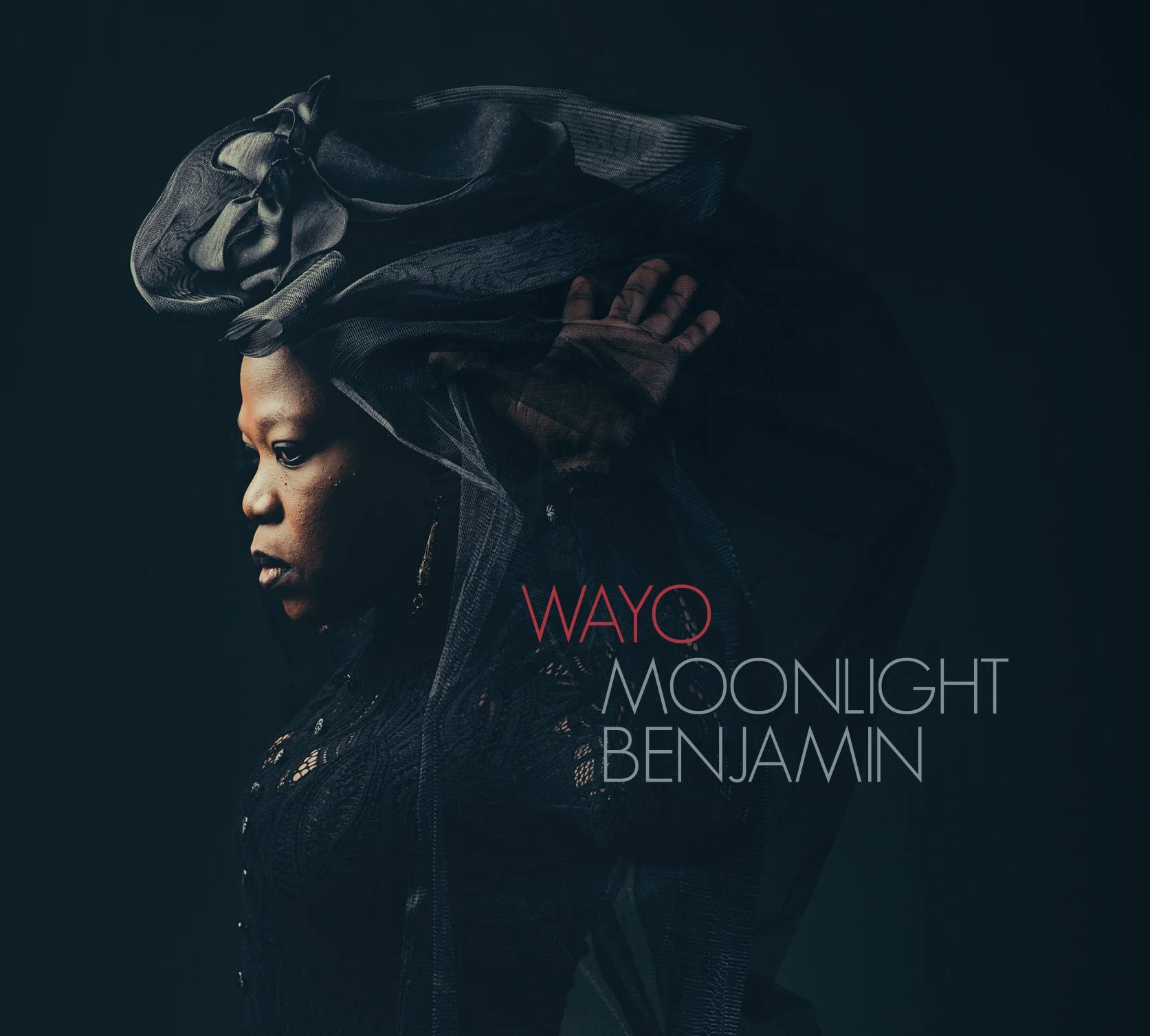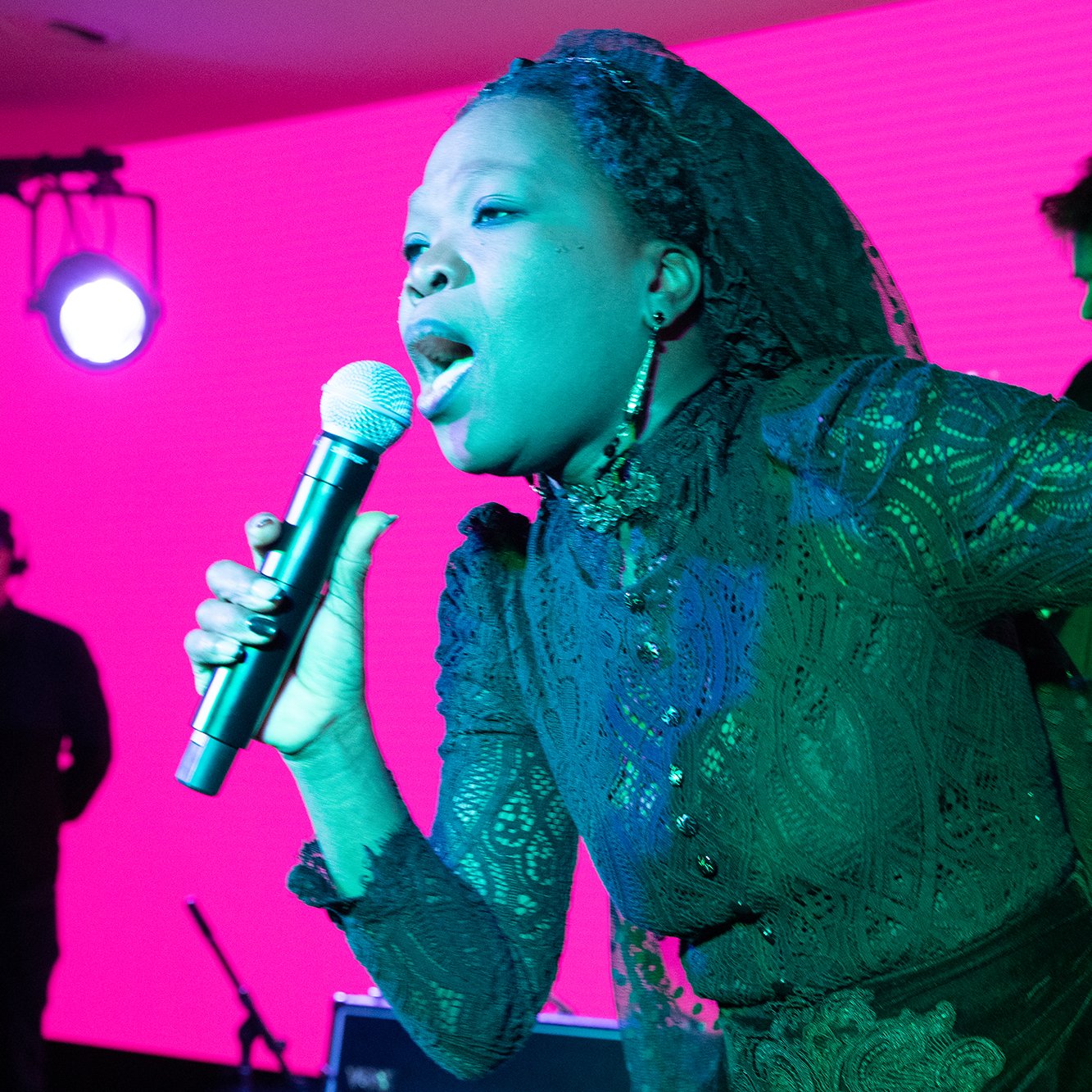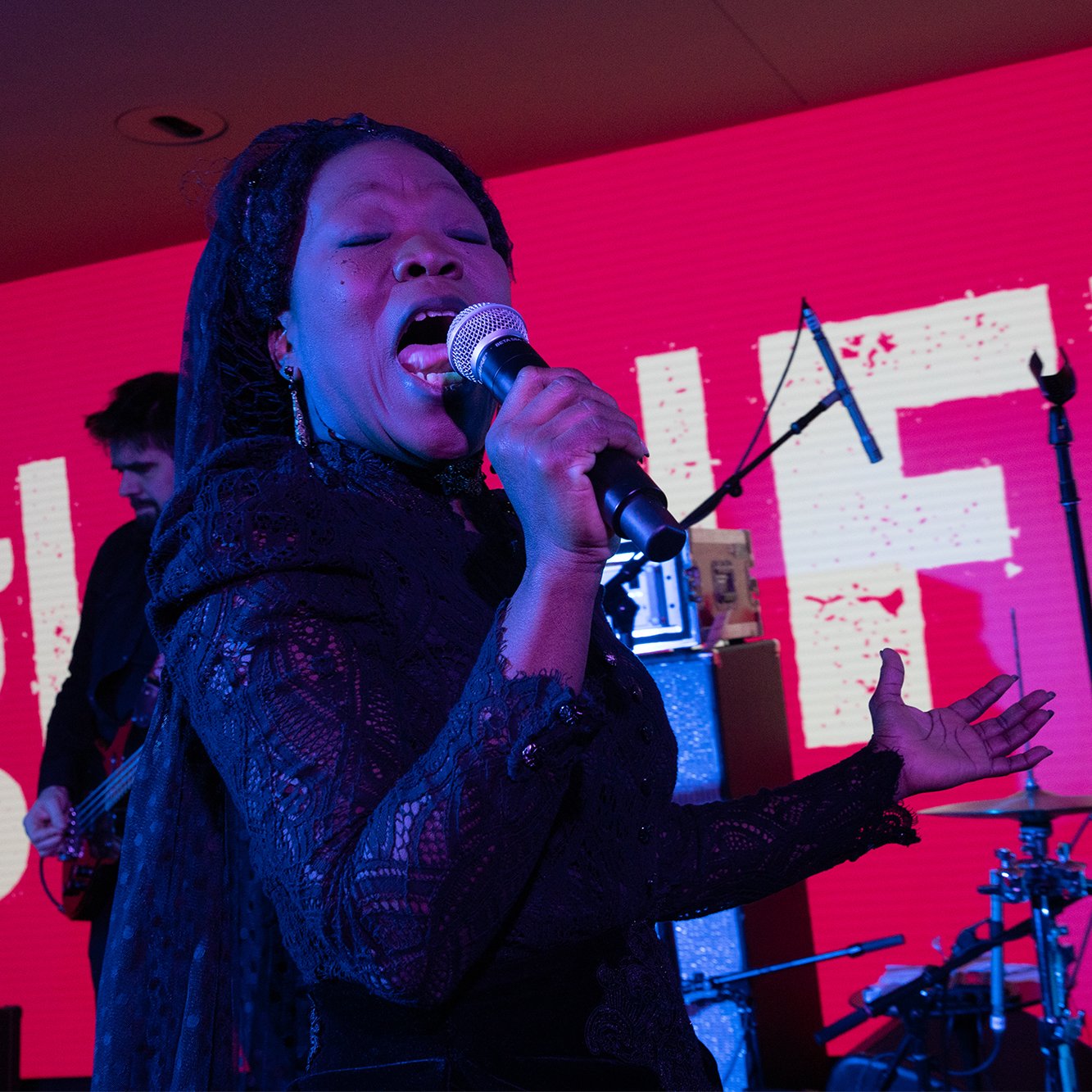Moonlight Benjamin Interview
Moonlight Benjamin has a new album “Wayo” coming, release date is February 24th, after which she plans a US tour in April. We had the pleasure of speaking to her about her music by phone from France after her exuberant globalFEST showcase and Tiny Desk appearance in January.
Moonlight Benjamin will release her new album Wayo February 24th
FQ: When I listen to Haitian music, for me it's Voodoo, it's in the vocal style, it's very rootsy, very authentic and usually it's tied to a certain rhythm as a prayer. Do you think the power of your music comes from separating the the singing from the rhythms?
A: Certainly, the rhythm is different but on the other hand all my melodic structure comes from traditional music. My melodies are inspired by voodoo music. And since I was born there, and I have my culture there, all my music is tied to voodoo, however, even though what happening around the music like all the instruments, are not voodoo, instruments that play the blues. which is slaves' music, in fact, it all derives from the slave's music. Rock comes from blues, and in the end, I am playing our ancestors' music. This choice to merge (to make this fusion), is precisely to meet others, because if we do not meet others, if we stay in our corner, we won't know, and the other cannot come to us. It's interesting that to enrich ourselves, we have to go to others, that's why I make this mix, rock - a music that Westerners play - with my culture, with what I am. It's to meet others and for the other to come to meet me.
Q: Jacques Schwarz-Bart compares voodoo singing to Opera, with its complexity.
A: I think so, there is a complexity in voodoo, in all that is rhythmic, I can understand what he means but that's another scenario, but then I think that all styles have their complexity in a certain way.
Q: There's one point when you knelt down on the stage, what song were you playing and what were you thinking ?
A: I kneeled down to thank the universe, the sky, the audience that were present to enjoy that moment with me, to listen to the music. It was a thank you.
Q: Do you feel a connection with the music of Louisiana where you play there? Because a lot of Haitian musicians go Louisiana to play.
A: Yes, the connection is there. I think the soul of music roams all over the world. As soon as you touch the blues, you see the music of the blacks, of the slaves. Every time you go to these places, Louisiana, Haiti, Chicago, we feel the soul of the slaves, of Africa, so inevitably there is a connection, because their soul still live there.
Q: A word about your next album.
A: The next album talks more about philosophical issues. The most important thing in this album is to realize that we are alive, that we can achieve things, that we all have dreams, that all dreams are great as long as they come from the heart and to shine the light that is in us and around us, to love ourselves and to love others
Q: Any upcoming tours
A: Yes, we are coming to the States in April for a tour.
Q: Any artist in America you would like to collaborate with?
A: Brittany Howard (The singer from Alabama Shakes)
Q: Tell us about your musical journey.
A: It's true that I grew up in a religious family, going to church, singing in the choir. When I moved out of my parents' home, I started getting to know people in voodoo, hanging out with them, going to dances. I was interested in that culture, the outfit and the music. I was charmed by the music and I wanted to know more, what was going on with that music. Then I came to France to train in music, then I created a group, and here we are.
Q: Where does the American blues come from into your passion? Is there a connection between the American blues and your music
A: Yes, there is a certain connection. Remember I just said earlier that I actually wanted to merge, to bring this world together to make the voices of those who have never been heard, the voices of slaves, the voices of peoples who have never been understood; so the blues is the music of the slaves, my way of singing and my melodies that I draw, that is to say that voodoo music, and voodoo is the culture of the slaves.
Q: What do you want the audience to get about your music?
A: When the audience listens to my music, I would like them to know that love is everything, with love we can succeed in everything, we can open doors.




